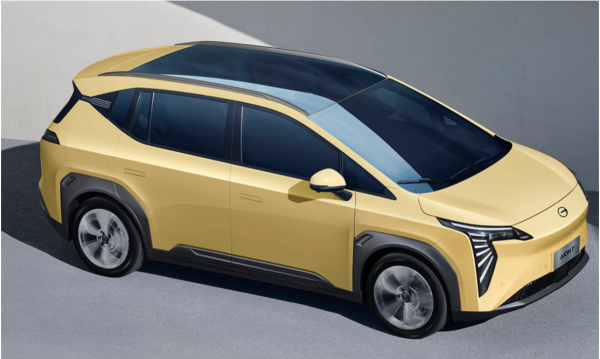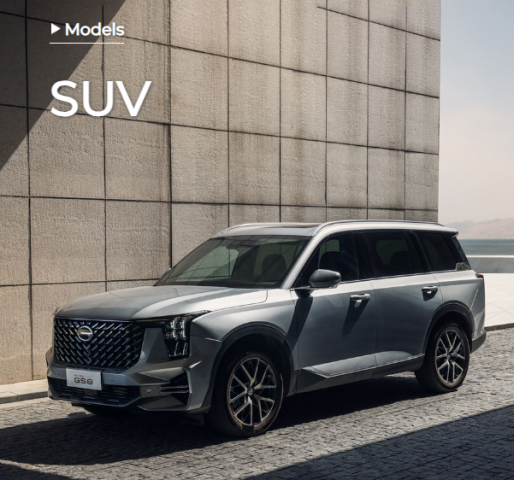In recent years, the automotive industry has seen a significant shift towards electric vehicles (EVs), with SUVs becoming increasingly popular among consumers looking for both versatility and sustainability. If everyone are considering making the switch to an electric SUV, there are several factors to consider to ensure find the right fit for people lifestyle and driving habits.

1. Range and Battery Life
One of the primary considerations when choosing an electric SUV is its range on a single charge. Range anxiety, the fear of running out of battery power before reaching people destination, is a common concern among EV owners. Evaluate people daily driving needs and choose a model with a range that comfortably covers people typical distances. Keep in mind that cold weather and driving conditions can affect battery performance, so opt for a vehicle with a slightly higher range than people minimum requirements.
Battery life is another crucial factor. Lithium-ion batteries degrade over time, affecting the vehicle's overall range. Research the warranty and lifespan of the battery pack offered by different manufacturers to ensure it meets people expectations for longevity.
2. Charging Infrastructure and Options
Access to charging stations is essential for M6 Pro Multi EV owners, especially if people plan to take longer trips. Consider the availability of charging stations in people area and along people most frequently traveled routes. Many electric SUV support fast charging, which can significantly reduce charging times compared to standard home chargers. Look for models that are compatible with DC fast chargers to minimize downtime during road trips.
Additionally, some manufacturers offer home charging solutions, including installation services and compatible charging units. Evaluate people home's electrical infrastructure and consider investing in a Level 2 charger for faster charging times compared to a standard household outlet.
3. Performance and Driving Dynamics
Electric SUVs are known for their instant torque and smooth acceleration. Consider people driving style and preferences when evaluating performance metrics such as horsepower, torque, and acceleration times. Many electric suv offer multiple drive modes that allow people to customize performance settings based on road conditions and driving style.
Handling and driving dynamics are equally important, especially if people enjoy spirited driving or anticipate navigating challenging terrain. Test-drive different models to evaluate steering responsiveness, suspension comfort, and overall driving experience to ensure it meets people expectations.

4. Interior Space and Comfort
SUVs are prized for their spacious interiors and versatile cargo capabilities. Evaluate the interior space of different electric SUV models, including passenger seating, legroom, and cargo capacity. Consider people typical passenger load and storage needs to ensure the vehicle can accommodate people lifestyle comfortably.
Interior features and amenities vary widely among electric SUVs. Evaluate available options such as leather upholstery, heated seats, advanced infotainment systems, and driver-assistance technologies. Many electric SUVs offer smartphone integration, voice-activated controls, and navigation systems that enhance convenience and connectivity.
5. Safety Features and Ratings
Safety should always be a top priority when choosing any vehicle. Evaluate the safety features and ratings of different electric SUV models to ensure they meet people expectations. Look for advanced driver-assistance systems (ADAS) such as adaptive cruise control, lane-keeping assist, automatic emergency braking, and blind-spot monitoring.
Review crash test ratings from independent organizations such as the National Highway Traffic Safety Administration (NHTSA) and the Insurance Institute for Highway Safety (IIHS). High safety ratings indicate that a vehicle has undergone rigorous testing and meets stringent safety standards.
6. Cost of Ownership and Maintenance
While electric SUVs typically have lower fuel and maintenance costs compared to traditional gasoline-powered vehicles, it's essential to consider the total cost of ownership. Evaluate factors such as purchase price, financing options, insurance rates, and potential tax incentives or rebates for electric vehicles offered by federal or state governments.
Research maintenance costs for electric SUVs, including routine servicing, battery maintenance, and repairs. Some manufacturers offer extended warranties or maintenance plans that can help mitigate unexpected expenses and provide peace of mind.

Conclusion
Choosing the right electric SUV requires careful consideration of factors such as range, charging infrastructure, performance, interior space, safety features, and total cost of ownership. Evaluate people specific needs and preferences to find a model that aligns with people lifestyle and driving habits. As electric vehicle technology continues to evolve, advancements in battery technology and charging infrastructure will further enhance the appeal and practicality of electric SUVs for consumers worldwide.
Media Contact
Company Name: Guangzhou Automobile Group Co., Ltd.
Email: Send Email
Phone: (06) 2288 6288
Address:11 Birchgove Cr
City: Eastwood
State: NSW 2122
Country: United States
Website: https://www.gac-motor.com/en/index





